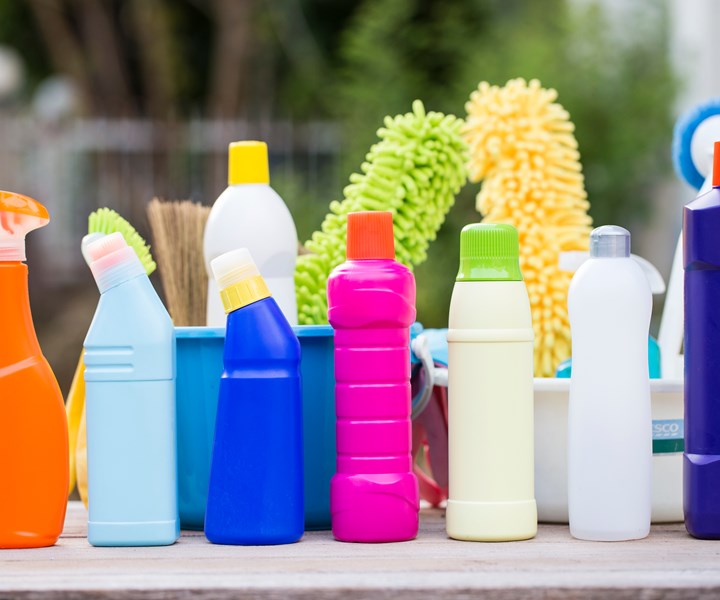EPA orders company to stop making plastic containers that leach toxic PFAS
The US Environmental Protection Agency (EPA) has ordered a major company to stop producing hundreds of millions of plastic containers each year that contain toxic per- and polyfluoroalkyl substances (PFAS), which leach into countless products.
The so-called “forever chemicals” are produced by a fluorination technique that Inhance Technologies uses to prevent liquids from leaking out of high-density polyethylene (HDPE) plastic containers.
The PFAS
can leach into pesticides, personal care products, household cleaners,
condiments, and many other liquids stored within the containers.
“I’m stunned but pleased that EPA took such strong action
and hoping the decision remains intact through whatever court case Inhance is
going to bring,” said Kyla Bennett, the science policy director for the
watchdog group Public Employees for Environmental Responsibility (PEER)
and a former EPA employee. “It wasn’t easy getting them there, but they got
there and that’s what matters.”
Inhance is “basically the only one in the world” that
uses this particular fluorination process to treat plastic containers, Bennett
said, adding that plastic containers from two ounces up to 55 gallon drums are
affected and “we’re talking about really all sectors of the economy.”
The order, issued Dec. 1 under the Toxic Substances
Control Act (TSCA), states that nine long-chain PFAS chemicals have been
identified in Inhance containers, including perfluorooctanoic acid (PFOA),
which was recently classified as carcinogenic to humans by
the International Agency for Research on Cancer (IARC), an arm of the World
Health Organization (WHO). The order will go into effect Feb. 28, 2024.
Although PFOA was phased out by manufacturers in 2015, it has been consistently found in products packaged in HDPE containers at levels 33 to over 1,000 times higher than the EPA’s proposed four-part-per-trillion Maximum Contaminant Level (MCL) for PFOA in drinking water, said the EPA in a press release.
“PFAS should not be in the plastic containers people use
every day, period,” Michal Freedhoff, assistant administrator for the EPA’s
Office of Chemical Safety and Pollution Prevention, said in a statement. She
called the action “one more way we are furthering the Biden-Harris
Administration’s Strategic Roadmap to combat PFAS pollution.”
“Alternatives to this fluorination process exist that
will allow for many sectors to continue to provide products with the necessary
protective packaging,” the statement said.
“Unreasonable risks”
There are thousands of PFAS chemicals, which do not break
down naturally and have been found in about 83% of US waterways and in the
blood of about 97% of Americans, according to the US Centers for Disease
Control and Prevention (CDC). Exposure to PFAS has previously been linked to
numerous health problems, including certain cancers.
Previous research has demonstrated that PFAS can leach
from HDPE containers, including a spring 2023 study by Notre
Dame University, which found significant concentration of PFAS in ketchup and
mayonnaise. Eight PFAS chemicals were found to leach from the walls of shipping
containers into the liquid solutions they contain, according to a 2022 EPA study.
In 2019, Bennett discovered that wells in Easton,
Massachusetts, where she lives, were contaminated with PFAS, which state
officials traced back to a pesticide used to kill mosquitoes. EPA scientists
later found that the PFAS in the pesticide originated from HDPE containers
manufactured by Inhance, where the product was stored.
When the agency did not require Inhance to stop producing
PFAS during its fluorination process, PEER and the Center for Environmental
Health (CEH) filed a notice of intent to sue
in fall of 2022, after which EPA filed a lawsuit against Inhance and
the cases were combined in the US District Court for the Eastern District of
Pennsylvania.
After reviewing information provided by Inhance, EPA
determined that PFOA and two other PFAS produced during the company’s
fluorination process “are highly toxic and present unreasonable risks that
cannot be prevented other than through prohibition of manufacture.”
“EPA’s action represents a substantial regulatory
overreach” said Inhance in a statement issued
Dec. 4. “With a cessation of this technology, we anticipate significant and
near immediate disruption across the supply chains of crop production, vaccine
transportation, outdoor power equipment, fuel additives, as well as many other
industries.”
“Third-party economic analyses estimate approximately $40
billion dollars of economic loss and an impact to more than 100,000 jobs across
the various supply chains following the proposed EPA action,” the statement
said. “Inhance Technologies will take all available measures to ensure the
continuation of this safe and environmentally beneficial technology, including
all remedies of the law.”
